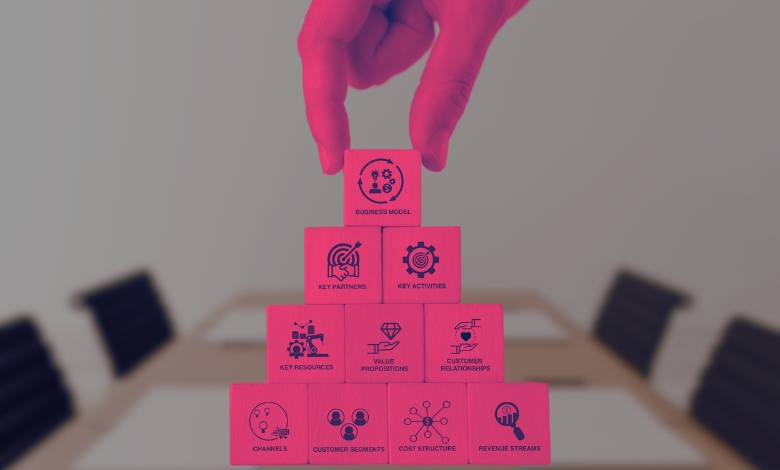Explore what must an entrepreneur assume when starting a business for a strong foundation and successful journey.
Building a business is exciting—starting something from scratch, seeing one’s ideas turn into all-too-often hard reality, and, of course, the promise of financial independence—all combine into an intoxicating mix of excitement and nerves.
But before you take that jump, let’s stop for a minute or two and consider: what must an entrepreneur assume when starting a business, especially when choosing among different types of business models?
If you’re reading this, I’d bet you’ve asked yourself that question—maybe even late at night when doubts creep in.
Trust me, you’re not alone.
In this session, I will walk you through some of the main assumptions every entrepreneur should consider.
Having been through the entrepreneurial trenches myself, I can confidently say, those first assumptions, including which types of business models to adopt, will set the tone for your entire journey.
So rather than listing them, I explain here what they mean, why they matter, and how to navigate them, so you can build a sound foundation for your venture.
Article Breakdown
Assumption #1: The Market Wants Your Product

Understanding Market Demand
You have invested weeks—most likely months—refining it, sketching prototypes, and envisioning your product in the hands of eager customers. But here it is: just because you believe in it doesn’t mean the market does. One of the first assumptions an entrepreneur must make is that the market has a genuine need or desire for their product.
Yet, this assumption comes with a hefty caveat: it needs validation.
Why This Matters
I was sure when I started my first business, an online service for curated travels, that people would be lining up. After all, who wouldn’t want personalized holiday recommendations? My enthusiasm blinded me from the very real fact that though my idea was exciting, I hadn’t been able to confirm whether any audience was ready and willing to pay for it.
Validating This Assumption
- Market research: Don’t skip this step. Conduct a survey, interview potential customers, or utilize the internet through accessible tools like Google Trends to analyze demand.
- Test the waters: Launch MVP. Provide a very basic product and test for interest. Is there traction? Is there enough interest to get people wanting to pull wallets out?
Example: Think of this process as if it were planning a big party. You might think that all people love pineapple on pizzas, but until you ask your guests, you could be setting yourself up for a lot of uneaten slices.
Assumption #2: You Will Have Financial Uncertainty
Money Troubles Are Inevitable
Let’s be realistic: entrepreneurship and financial security are not exactly a marriage made in heaven—at least, not at first. You may think your savings to start or early profits will see you through. The reality? Money dries up quicker than you may think, and unexpected expenses have a habit of always finding a way to pop up.
Why This Matters
Too many fresh entrepreneurs underestimate how long it may actually take for a business to become profitable. It’s not good enough just to make enough to cover your overhead but to be able to support yourself through the lean months. I’d assumed my side hustle would easily segue into my primary source of income, and that naively optimistic view had me scrambling as the bills piled up faster than the revenue.
Actionable Tips to Manage This Assumption
- Create a Cushion: Save up 6-12 months of living expenses before going full-time.
- Budget Beyond Startup Costs: Plan for a budget that covers at least some marketing costs, unexpected repairs, and those “we didn’t think of that” expenses.
- Diversify your income streams: Be it freelancing, consulting, or passive income—the backup could help you weather the storm.
Business is like going on a long hike with a backpack on. You need to pack enough for the path you know will have detours along the way.
Assumption #3: Your Business Plan Should Change
Embrace Change—It’s Inevitable
If you think your initial business plan is set in stone, let me stop you right there. Your plan is your starting point, not your terminal destination. I learned this when my first business pivoted from being a comprehensive service to focusing on just one core offering that resonated most with customers.
Why This Matters
Markets change, the customers’ needs evolve, and your assumptions on what works best may be proved wrong as you start receiving feedback. Flexibility is key to survival.
How to Adapt Without Losing Focus
- Remain Customer-Oriented: Communicate regularly with your users to understand their changing needs.
- Iterate fast: Not getting bogged down in trying to get everything just right. Launch, learn, and iterate.
- Measure What Matters: Track progress through KPIs to understand where refinement is needed across the business.
With my second venture—a tech consulting firm—I had assumed that my services would be focused on small businesses. The time clients began rolling in, it actually turned out that big companies were even more willing to pay better fees for customized solutions. We readjusted our focus, and boy did it pay off.
Assumption #4: You’ll Work More Than You Expected To
Get Ready to Grind
We’ve all heard the romantic version: flexible hours, being your own boss, working from a hammock on a tropical beach. The reality? You’ll probably work more hours than any 9-to-5 job. Early on, I really thought my schedule would be chock-full of the “fun” parts of business: creative brainstorming, networking, and celebration of wins. Well, let me spoil it for you—my days were slammed with troubleshooting, urgent emails, and late nights fixing tech issues.
Why This Matters
Burnout is real. Many entrepreneurs assume they’ll just be able to keep the perfect work-life balance right from day one, but learning to pace yourself is actually a must-have for long-term success.
How to Deal With This Assumption
- Set early boundaries: You know what personal time is not up for negotiations; try to stick to it as much as possible.
- Automate and Outsource: Highlight tasks that are repetitive and can, therefore, be automated or outsourced.
- Prioritize Self-Care: Your health fuels your productivity. Make time for exercise, downtime, and sleep.
Example: Running a business is like juggling, where the balls never stop coming your way. In other words, unless you pace yourself, they all fall.
Assumption #5: Your Network is Priceless
Relationships Fuel Growth
Founders often go into it assuming their skills and drive alone are enough. And while self-belief is important, the relationships matter just as much. I’m early into my journey, and I’ve already learned how much I take the advice of mentors, peers, and even former colleagues for advice, partnerships, and referrals.
Why This Matters
Building a network isn’t about garnering support; it’s all about access to new ideas, potential clients, and valuable feedback. For a well-connected entrepreneur, those obstacles that others can’t jump over become easy to leap over.
How to Build and Leverage Your Network
- Attend industry events: In person or virtually. Showing up is half the battle.
- Join Entrepreneurial Groups: Networking platforms and mastermind groups are places one can get a lot of collaboration and support.
- Give Before You Ask: Be the first one offering assistance, advice, or connections. It creates goodwill and strengthens relations.
A connection I made at a local startup event turned into a mentor who provided invaluable advice during a tough business pivot, and that relationship saved me so much time, money, and stress.
Assumption #6: Your First Try May Not Work—And That’s Fine
Failure is Part of the Journey
This probably is one of the worst assumptions to take. Nobody gets into business so that they can experience a failure, but the reality of life is that many first attempts just don’t work. My first venture did not turn out as I had envisioned it, and with hindsight, it was about learning resilience and adaptation.
Why This Matters
Understanding that failure is just not the end, but one step to success, can help break or make your entrepreneurial spirit. The real trick lies in not allowing one setback to define you or scare you from pursuing things in life.
What to Do When Faced With Failure
- Analyze and Learn: Don’t just walk away from a failed venture; dissect it. What worked? What didn’t? Use these insights for your next move.
- Be Resilient: Remember why you started and keep the bigger picture in mind.
- Get Support: Get perspectives and encouragement by reaching out to your network or joining forums.
Insight: Even Thomas Edison said, “I have not failed. I’ve just found 10,000 ways that won’t work.” Entrepreneurship is no different.
Key Takings
- Every entrepreneur is on a different journey.
- The assumptions you make will drive your choices, while the outcome of those choices is a function of how open you are to change.
- After all, it is not about taking risks but about calculated risks, learning along the way, and holding onto your vision while being adaptive.
- Setting up a business is a leap of faith, but if the assumptions are right and a correct mindset is maintained, then surely you will land upon solid ground.
Additional Resources:
- The Lean Startup by Eric Ries: Discover innovative strategies for creating successful startups. Explore on Amazon
- Think and Grow Rich by Napoleon Hill: Uncover timeless principles for achieving personal and financial success. Learn more at Napoleon Hill Foundation
- Founders at Work: Stories of Startups’ Early Days by Jessica Livingston: Read inspiring stories of early challenges and triumphs from successful startups. Find out more on Wikipedia
- The 7 Habits of Highly Effective People by Stephen R. Covey: Master habits that can transform your personal and professional life. Check it out on Amazon
- The Power of Now by Eckhart Tolle: Embrace the present moment for spiritual awakening and personal growth. Visit Eckhart Teachings for more



